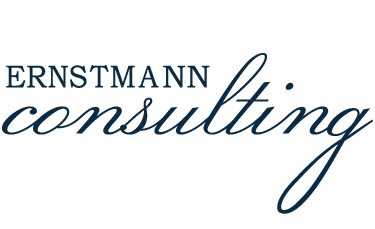Leadership Development
“Talisa provided us with the vision and operational support necessary to build our mentoring program from the ground up. She worked with our design team for more than two years and helped us create a best-in-class mentoring program that yielded measurable results. Talisa is also the most effective presenter I have ever worked with.”
Leadership development programs are the difference between good leaders and great leaders. Research indicates that the number one reason employees say they leave their jobs is "my manager." Many times managers are not equipped with the requisite skills to lead people. Maybe they were promoted based on technical skill, or they are good managers of "things." But that does not necessarily mean they are good managers and leaders of "people." At Ernstmann Consulting we work with your organization to design programs that help both new and existing leaders inspire, encourage, coach, and develop others. But the focus isn't just on the individual leaders, we also design our programs to help the organization get better results.
Leading People: Inspiring, encouraging, coaching and developing. We use a variety of tools that give leaders feedback on their performance and their strengths and weaknesses:
- Multi-rater Feedback - We use several multi-rater assessments (also known as 360-degree feedback assessments) where leaders receive performance feedback from their boss, peers, subordinates and others on what they are doing well and what they could improve. Once they receive this feedback, they meet with one of our coaches to design an action plan for improvement.
- Style Assessments - We encourage the use of several instruments, such as values assessments, the Myers-Briggs Indicator and others, to help leaders learn more about themselves and how best to motivate and lead their people. We help leaders use this information to create development plans that leverage strengths and improve weaknesses.
Getting Results: We use a variety of tools, techniques and processes to help leaders achieve greater results through others: Action Learning - Action learning is a technique where leaders participate in a process to solve real-world business problems while also learning more about how to work in a team. Participants follow these steps: 1) defining the problem, 2) reframing the problem, 3) determine problem causes, 4) developing alternative solutions, 5) evaluating alternatives and selecting the best action and 6) implementing the solution. The key to action learning is not only learning problem resolution skills, but also skills of reflection and collaboration.
- Organization Assessment - To help organizations achieve the results they want, we first begin by assessing the organization's strengths and weaknesses. We do this by using a leadership culture survey, which delivers an impactful "litmus test" of your leadership culture. It tells how your leaders view the current leadership culture and compares it to the optimal culture they desire. Once gaps are assessed, we design a program for your leaders to close those gaps.
Mentoring: Research has shown that companies who employ a formal mentoring program have higher retention rates and are better equipped to deal with organizational change or crises.
In addition, formal mentoring programs that are sponsored by the larger organization and have structures in place for selection, training and goal setting are consistently more successful than informal, less structured programs. Some areas where a mentoring program can assist your organization include 1) speedier assimilation of new employees to increase retention, 2) better preparation of emerging leaders in order to improve succession planning and 3) increased competence and skill building of technical staff to improve performance. At Ernstmann Consulting we work with you to carefully design a formal program where the mentoring initiative is clearly defined and has specific measurements for gauging progress. The program objectives you decide on will then influence selection of applicants, matching process, determination of special events and other program elements.

